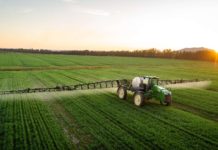By Zolile Ntukwana, Senior Director: Corporate Affairs at PepsiCo South Africa
Across the globe, entrepreneurship is recognised as a vital driver of economic growth, innovation, and social progress. This is particularly true within the food and agri sector, where entrepreneurs are playing an increasingly important role in addressing challenges and creating opportunities for a more sustainable and inclusive future.
Entrepreneurs: Responding to Needs, Driving Innovation
At its core, entrepreneurship is about identifying needs and developing innovative solutions. In the food and agri sector, this translates to entrepreneurs who are creating new ways to produce, distribute, and consume food, often with a focus on improving efficiency, accessibility, and sustainability. This drive to innovate can be seen in a wide range of initiatives, from developing new agricultural technologies to creating innovative food products and services.
Through partnerships, mentorship, and investment, PepsiCo South Africa and the Kgodiso Development Fund (KDF) is helping business owners grow and improve lives. These entrepreneurs are shaping the future of food and beverage in ways that benefit both businesses and society.
Stokka Fela: Growing Township Businesses
In South Africa, where unemployment is high and many people are struggling to find opportunities to sustain their livelihoods, the informal township economy has emerged as a key role player in creating opportunities.
One of the standout success stories is Stokka Fela, a township-based business that has become a household name in the informal market sector. With the help of the Kgodiso Development Fund (KDF) and PepsiCo, Stokka Fela expanded its operations, reaching new markets and providing affordable snacks to underserved communities. This funding allowed Stokka Fela to enhance its supply chain, optimise distribution channels, and ultimately, scale its business to create more jobs within the township economy.
Stokka Fela represents the entrepreneurial spirit that the fund seeks to nurture. The company started with a simple mission: to bring nutritious, locally made snacks to township residents. Today, Stokka Fela has grown into a thriving business, providing employment opportunities and ensuring that healthy, affordable food is accessible to all.
This success story underscores the power of collaboration and demonstrates the potential of township markets to drive income generation in ways that are both scalable and sustainable, proving that these often-overlooked communities can be significant drivers of economic growth.
Empowering Farmers, Building Sustainable Practices
The agricultural landscape is constantly evolving, with farmers facing challenges such as climate change, resource scarcity, and changing consumer demands. Entrepreneurs are stepping up to address these challenges, developing and implementing innovative solutions that promote sustainable farming practices and enhance food security.
The Vine Academy focuses on upskilling farmers in sustainable agricultural practices. By providing training programs that incorporate technology and innovation, the Vine Academy empowers farmers to increase their yields while minimising their environmental impact. This new generation of agripreneurs who understand the importance of sustainability in food production are now contributing to job creation and food security in rural areas.
Connecting Farmers to Markets, Fostering Inclusivity
Access to markets is crucial for the success of any farmer, but small-scale and emerging farmers often face barriers in reaching consumers and participating in larger supply chains. Entrepreneurs are leveraging technology and innovative business models to bridge this gap, connecting farmers with buyers and creating a more inclusive agricultural sector.
Khula provides emerging farmers with access to markets that were previously out of reach. By connecting farmers directly with buyers, Khula helps to level the playing field and ensure that even the smallest producers can benefit from the growing demand for food products. This type of initiative is essential for building a more equitable and resilient food system, where all farmers can thrive.
Fostering Entrepreneurship: A Collective Responsibility
While entrepreneurs are the driving force behind innovation and progress, their success is often dependent on the support of a wider ecosystem that includes investors, mentors, policymakers, and the private sector. Creating an environment that fosters entrepreneurship requires a collective effort, with stakeholders working together to provide access to resources, remove barriers, and cultivate a culture that celebrates innovation and risk-taking.
Programmes like the Mzansi Black Business Accelerator and Pep Preneurs, both backed by PepsiCo, demonstrate the role that business can play in supporting entrepreneurship. These initiatives provide aspiring entrepreneurs with access to funding, mentorship, and business development resources, empowering them to launch and grow their ventures.
By providing entrepreneurs with both the capital and the guidance they need, Pep Preneurs is helping to build a network of successful small businesses that are driving innovation in the food and beverage sector. The ripple effect of this support can be seen in the creation of new jobs, the development of sustainable business practices, and the overall growth of the township economy.
Entrepreneurship: A Catalyst for Positive Change
This Entrepreneurship Month, it is important to recognise the crucial role that entrepreneurs play in shaping the future of the food and agri sector. Their innovative spirit, unwavering determination, and commitment to sustainability are driving positive change across the entire food system, from farm to table.
It takes a collective effort to support entrepreneurs and foster an environment where they can thrive, but together, we can unlock their full potential to address challenges, create opportunities, and build a more sustainable, equitable, and prosperous future for all.








